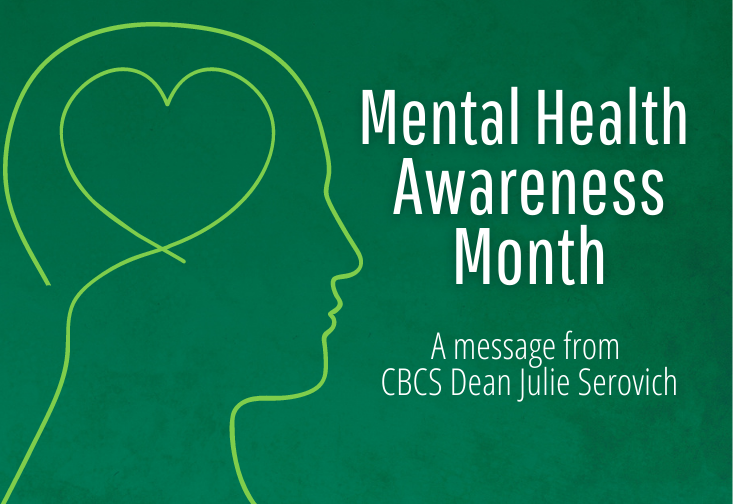
“How are you?”
It’s a question that is so often asked and answered in passing, sometimes without much thought. So, I’ll ask it again. Really, how are you? When asked with empathy and intention, this question can make an important difference in someone’s life. This May, as we observe Mental Health Awareness Month, I challenge you to take the time to truly think about your mental health and talk openly and honestly about it with those you love. By having regular conversations with family and friends, not only this month, but also all year long, we can support each other while also working toward destigmatizing an important topic.
According to Mental Health America, a community-based nonprofit dedicated to addressing the needs of those living with mental illness, nearly one in five American adults experienced a mental illness in 2019, and more than half of adults with mental illness – over 27 million adults in the U.S. – go untreated. Mental illness is among the most common health conditions in the U.S., so there’s a high probability that each and every one of us will be touched by it in our lifetime. Whether you are aware of it or not, it’s likely that someone in your life – yourself, your parent, your sibling, your best friend – could be dealing with a mental health or behavioral health disorder.
Mental and behavioral health issues are nothing to be ashamed of. In fact, many people in history have made incredible impacts on the world, all while living with a mental or behavioral health disorder. Iconic authors Edgar Allen Poe and Sylvia Plath both were said to have experienced symptoms of depression. Celebrated artist Vincent Van Gogh, who composed the famous Starry Night, was believed to have been experiencing mental illness. More recently, the brilliant actor and comedian Robin Williams, whom many described as so outwardly joyful, died by suicide.
It’s past time that we see mental illness and behavioral health issues as health conditions that deserve treatment and support just like any other physical health condition. We must continue to focus on research and education, early identification through screenings, intervention for those with risk factors, and access to quality treatment for everyone who needs it.
The past two years in particular have been difficult for many of us. The good news is that, these days, anyone affected by mental illness or behavioral health issues can find help. One local organization that ensures no one has to face crisis alone is the Crisis Center of Tampa Bay. If you or someone you care about needs support, you can call 2-1-1 and receive free, confidential crisis intervention, along with referrals to either a Crisis Center service or over 3,000 other community resources. If you don’t want to access these supports, or maybe you or a loved one are struggling to access licensed mental health professionals due to cost or any other barriers, another option available to you is peer support. For example, the National Alliance on Mental Illness offers many programs, free of charge, most of which are run by people who have themselves been there and are ready and eager to help. Wherever you seek support, this May I encourage you to prioritize your mental health, and I hope this month and beyond brings all of us hope, healing, and understanding.
Sincerely,
Dean Julie Serovich, PhD
College of Behavioral and Community Sciences
